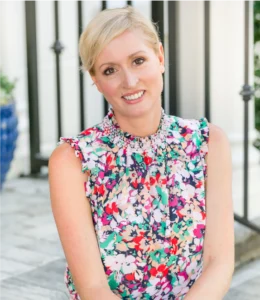“Nah, not for me.”
That would’ve been my go-to response a few years ago if you’d asked, “Kandi, do you want to be an expert on burnout?”
I probably would have smiled and politely declined, but inside I would’ve been screaming, “No way, rosé!”
You see, most of the research and media coverage at that time was focused on the psychologically hazardous causes and consequences of this career-killing syndrome. It was, of course, important research, and those stories needed to be told.
But my brain was insistent: “Caution! You might run the risk of burning out again if you study something as painful as burnout.”
I (incorrectly!) assumed that anything I learned about burnout would be sad and depressing. And, honestly, I doubted my ability to make space for that in my life because (you’ve probably guessed)… I was already fighting burnout.
Well, it turns out the failed framing I had about burnout held me back from diving into what I was really curious about:
- Why is it that some people can experience a very high degree of stress at work and NOT get burned out?
- Did they all win some sort of genetic lottery? Were they just gifted with super stress-busting powers?
- Were they raised by unusually cool-headed parents? (Lucky them!)
- Did they acquire special life skills that make them seemingly immune to burnout?
- And…how can I get me some of that?!?
Just like that, I had my dissertation topic: How do people who experience high degrees of stress at work protect themselves from burnout and heal from work if they experience burnout?
Since completing my dissertation research in 2016, I’ve conducted multiple studies with hundreds of people, including senior law enforcement leaders and police chiefs, C-suite executives, mid-level and front-line leaders, and even bartenders and baristas. (Yes, I will talk to anyone and everyone willing to open up about how they cope with their demanding job!)
And that research is paying off.
The more I learn about burnout, the more motivated and committed I am to make sure I don’t slip back into it. The more I want to double down on translating my research into positive, proactive, and practical strategies. (You’ll hear loads more about this in my upcoming book, Burnout Immunity: How Emotional Intelligence Can Help You Build Resilience and Heal Your Relationship with Work.) And the better I get at teaching our three teenage sons (can you imagine our car insurance bill?! ) how to develop their emotional agility and mental toughness.
I can’t wait to share what I’ve learned so far. If you want a sneak peek, check out the I Wish They Knew with Joe Hirsch Podcast and the Community Web Safety Podcast.
In the meantime, let me share a couple of tips that work for me. When I start feeling overwhelmed or burned out, I try to remember:
- My number one job is to keep myself in the “sweet spot” of stress. (I’ll dig into exactly what that is next month, so stay tuned!)
- It’s not me that’s causing my burnout; it’s my job.
- I’m in control of my emotions, thoughts, attitude, and behaviors –– not my job.
- My job is not (all of) me.
- It’s up to me to figure out how to make my job fit into my life.
I get it — that may sound like a lot to remember, but the stakes are too high not to.
Want to learn more? Hire me to speak at your conference or facilitate a fun and engaging workshop with your team! 



